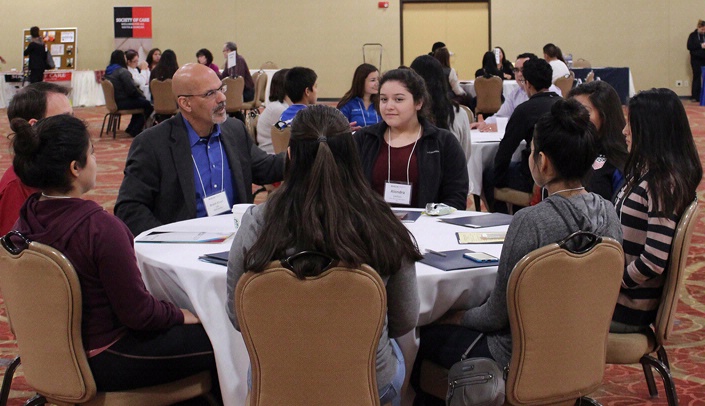Historic trauma, contemporary tribal issues and the opportunity to create positive change were the focus of the daylong UNMC Behavioral Health Education Center of Nebraska (BHECN) Ambassadors Conference held Nov. 2 in South Sioux City, Neb.
“You have the power and the opportunity to help your family, your friends, your neighbors and your communities heal,” Frank LaMere, an elder with the Winnebago Tribe told the students.
A total of 112 high school and undergraduate students, representing seven tribes in Nebraska and South Dakota, four tribal colleges, two universities and one community college, took part in the conference.
The conference was co-sponsored by the SEPA (Science Education Partnership Award) program and BHECN, under the direction of the Munroe-Meyer Institute’s Maurice Godfrey, Ph.D., principal investigator of the $1.5 million NIH grant that funds SEPA, and Howard Liu, M.D., director of BHECN.
Grace Johnson, a dual-licensed mental health therapist, drug and alcohol counselor and member of the Oglala Sioux Tribe, gave a keynote presentation on historic trauma and the impact it continues to have on Native American communities today.
The students met with behavioral health professionals representing nine careers including psychiatric nursing, social work, counseling and psychology. They also rotated through 14 table topics.
